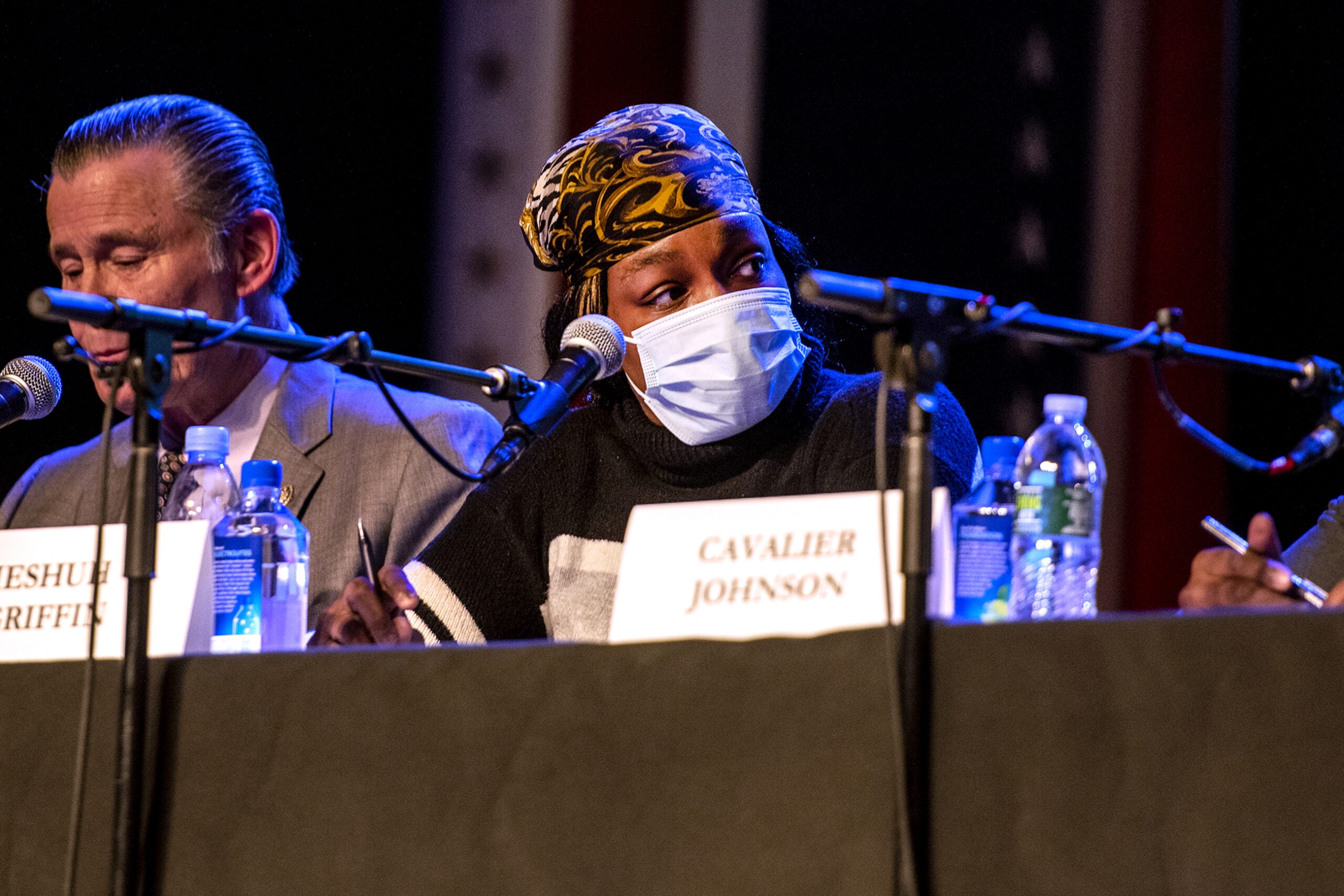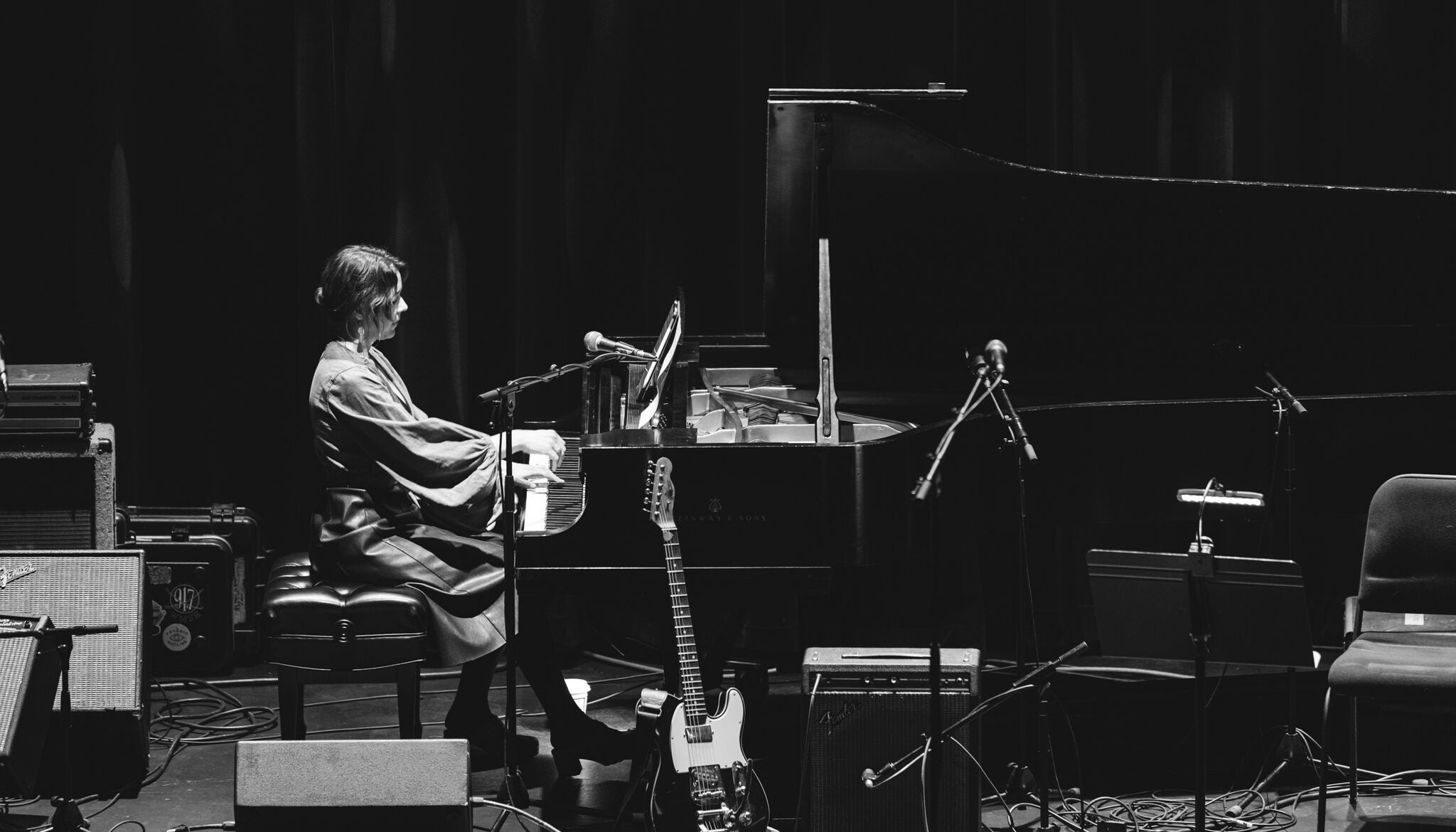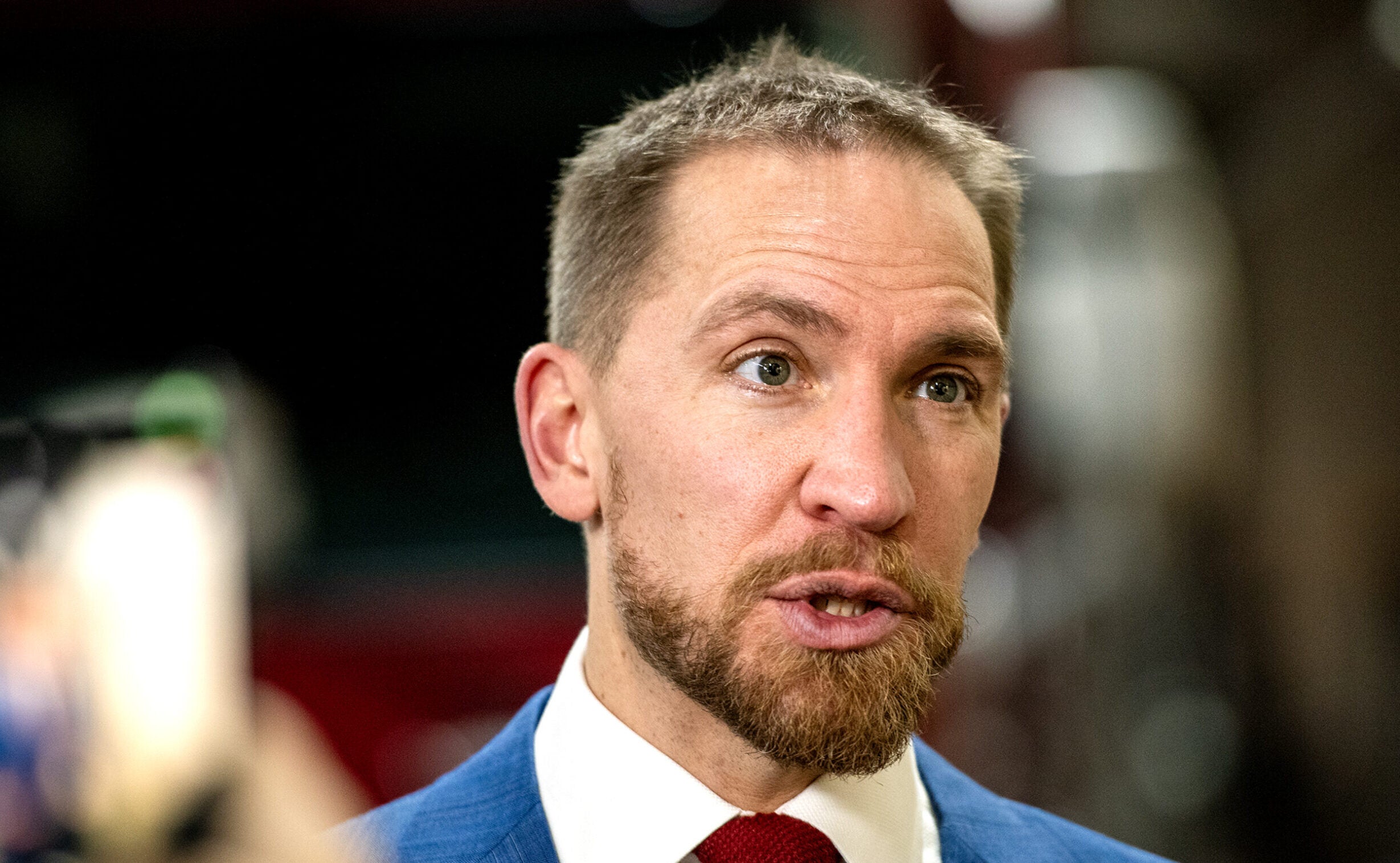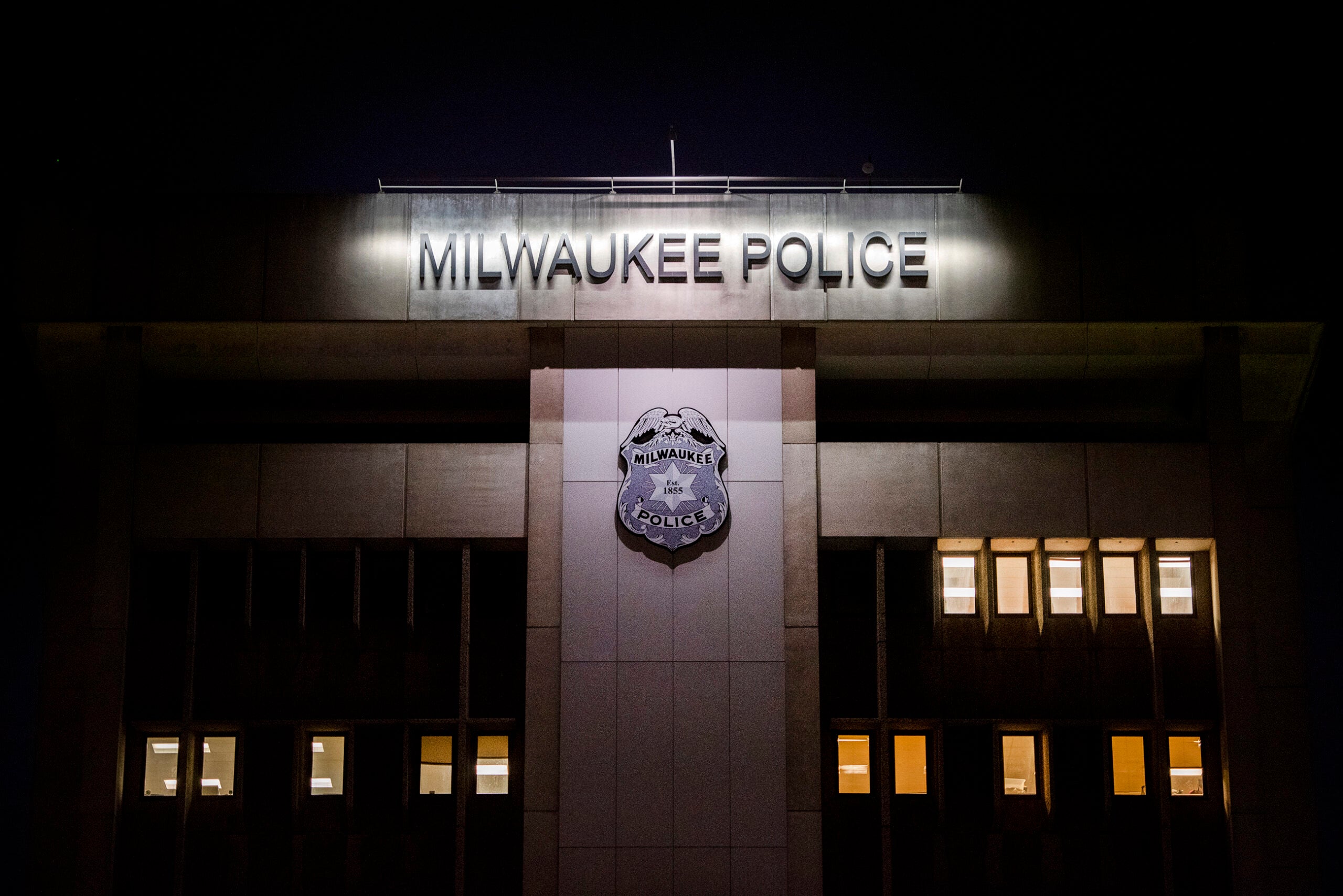If elected mayor of Milwaukee, a community activist said Friday she would create committees to find where the government is failing the people, and she would also audit city finances to find wasteful spending.
Ieshuh Griffin shared details of her Taking Care of Business committees and her Ieshuh for the People plan as she runs to lead the city.
She has run before to be in the state Assembly, but she has not been elected to public office.
Stay informed on the latest news
Sign up for WPR’s email newsletter.
Seven candidates are running to lead Milwaukee and replace former Mayor Tom Barrett, who was first elected to the position in 2004 and left in December to serve as the U.S. ambassador to Luxembourg.
The Tuesday primary election will determine which two top vote-getters will face off in the April 5 special election. The winner will finish out the last two years of Barrett’s term.
Q&As from interviews with candidates that air on WPR’s “The Morning Show” will be published here. This story was edited for brevity and clarity.
Kate Archer Kent: What are your priorities for the city?
Ieshuh Griffin: First of all, my priorities are the people. There are so many different things going on. If I had to summarize it, it would be the people, the services and zero tolerance for discrimination — trying to eradicate discrimination (that has) kept Milwaukee back for a minimum of 17 years.
KAK: In 2019, Milwaukee County passed a resolution declaring racism a public health crisis. How would you tackle inequality in the city?
IG: That resolution is just for show because after the resolution, nothing has been done to show that that resolution really had any powerful meaning (or) any substance in it. Contrary to the other (mayoral) opponents and those that are already in office, I’ll be meeting firsthand on a regular basis with the community. I will have regular meetings with every head department of every agency in the city of Milwaukee. I will do pop-ups. I will definitely have (my) Ieshuh for the People plan effectuated, which has TCB committees — Taking Care of Business committees — to make sure that we constantly look at where the government is failing the people, so that we can enact, enforce and regulate things in a timely manner.
KAK: What are these TCBs?
IG: Making sure that we have solutions and not just statements and press releases to the community giving bare bones analysis of different things that don’t have a solution to the issues. It would also include looking at where the government is failing the people so that we can enact different things of that nature, (such as) regulations, and enforce different laws already on the books.
Also, I will meet regularly with every head department in the agency and also do my own pop-ups within the agency. I’ll have regular constituent service days — face-to-face meetings with the community to see how they feel, what’s going on and what we need to address because this is really the people’s seat. We’re representing the people. It’s not a seat we just sit in once you’re in office.
KAK: What is your approach to reducing violence and reckless driving?
IG: I think the community is being disserved because there is a false projection being put out, as if violence is only about homicides when homicide is the lowest form of gun violence. Actually, suicide is the highest form of gun violence, but the highest form of violence overall is rape and sexual assault. And it’s something that my opponents do not want to touch.
I have my Ieshuh for the People plan, where I’m looking at resources to stop certain homicides because a lot of the homicides are based on desperation, poor decision-making and different things of that nature. It is the lowest form of violence, but it’s still violence.
For instance, you had a Burger King robbery where these young people were desperate to pretend as if they’re robbing something out of desperation for money. It wasn’t even a real robbery. It was something else put together. It was illogical thinking, and it resulted in the loss of life.
KAK: How would you address poverty in Milwaukee?
IG: The American Rescue Plan Act, for one, the current acting mayor is misallocating those funds. Those funds are specifically to rescue the Americans and the America within Milwaukee. One of the reasons the funds are there is to relieve the poverty of children.
We have funds. We have resources. We also can collaborate with different entities. My opponents are making this assumption that they’re forced to fight with the state. And it’s not true because the state is the mother, basically, of the city. The city is only a creation of the state. You have to work with the state.
Also, federal funds. Chicago has a toll where they bring in revenue. Milwaukee doesn’t have a toll. There are so many different things that we can do (where) public officials could take the burden off people. One of the things I stated I would do if elected mayor is to do a complete audit to see where the wasteful spending has gone. We have billions of dollars that could be saved every year in regards to revenue if we identify where the wasteful spending is going.
KAK: What would you do about creating more affordable housing?
IG: In my Ieshuh for the People plan I have something called MENDAS — Major Economic Neighborhood Development and Supervision. I would bring the community to the table, and we could discuss different things, like the dollar houses (that are) just sitting there that the city has a stronghold of. We can teach them how to be homeowners and donate some of the abandoned homes to help people be homeowners. Because in Milwaukee, Black people are the lowest homeowners … So, we have renters. In my Ieshuh for the People plan I have rent intervention, where we try to stop these evictions based on a slumlord’s retaliation.
(We are) trying to have vouchers, where they don’t have to be removed from their homes. And so, I have a plethora of ideas. We have more issues than this, what they try to put in a nutshell.
Wisconsin Public Radio, © Copyright 2025, Board of Regents of the University of Wisconsin System and Wisconsin Educational Communications Board.





